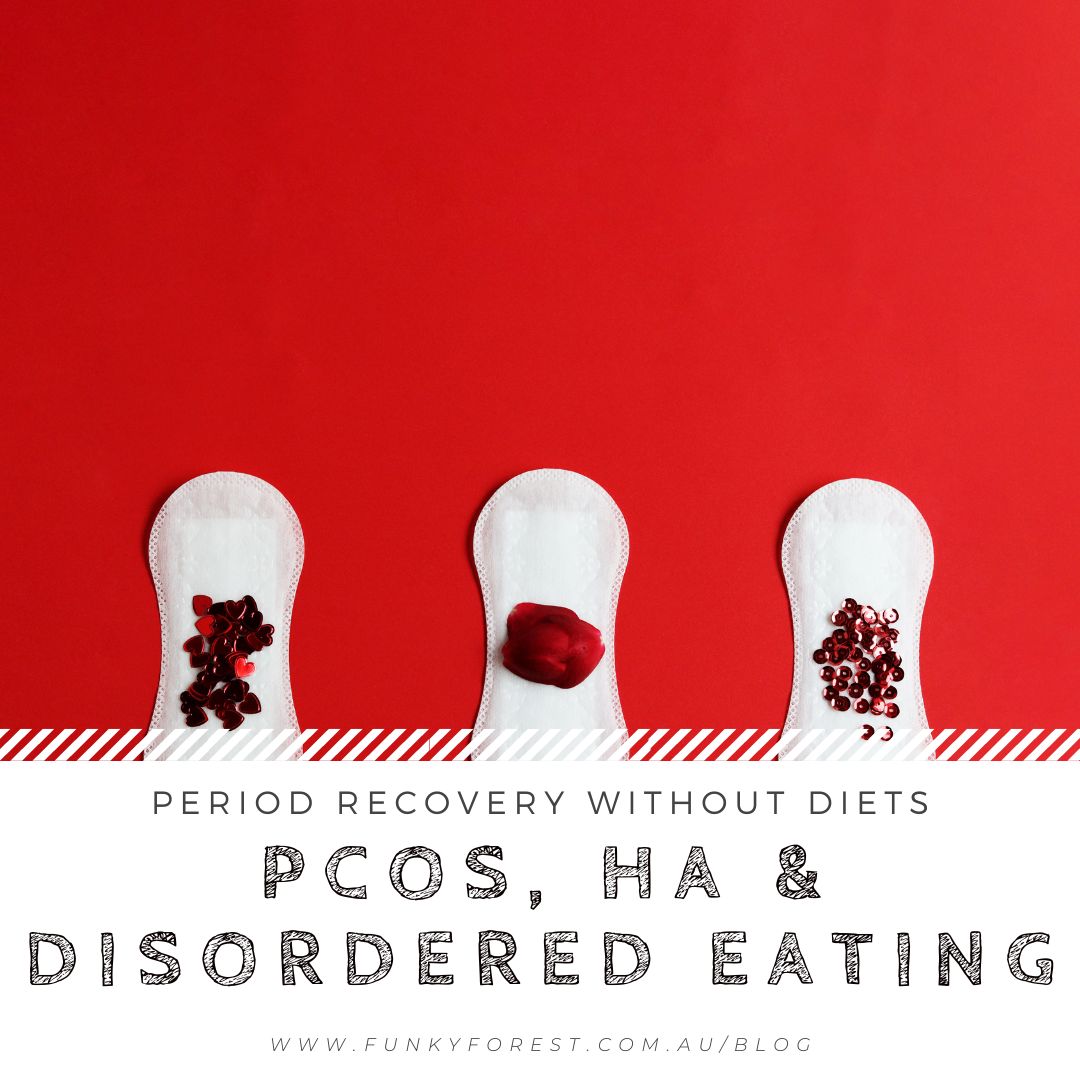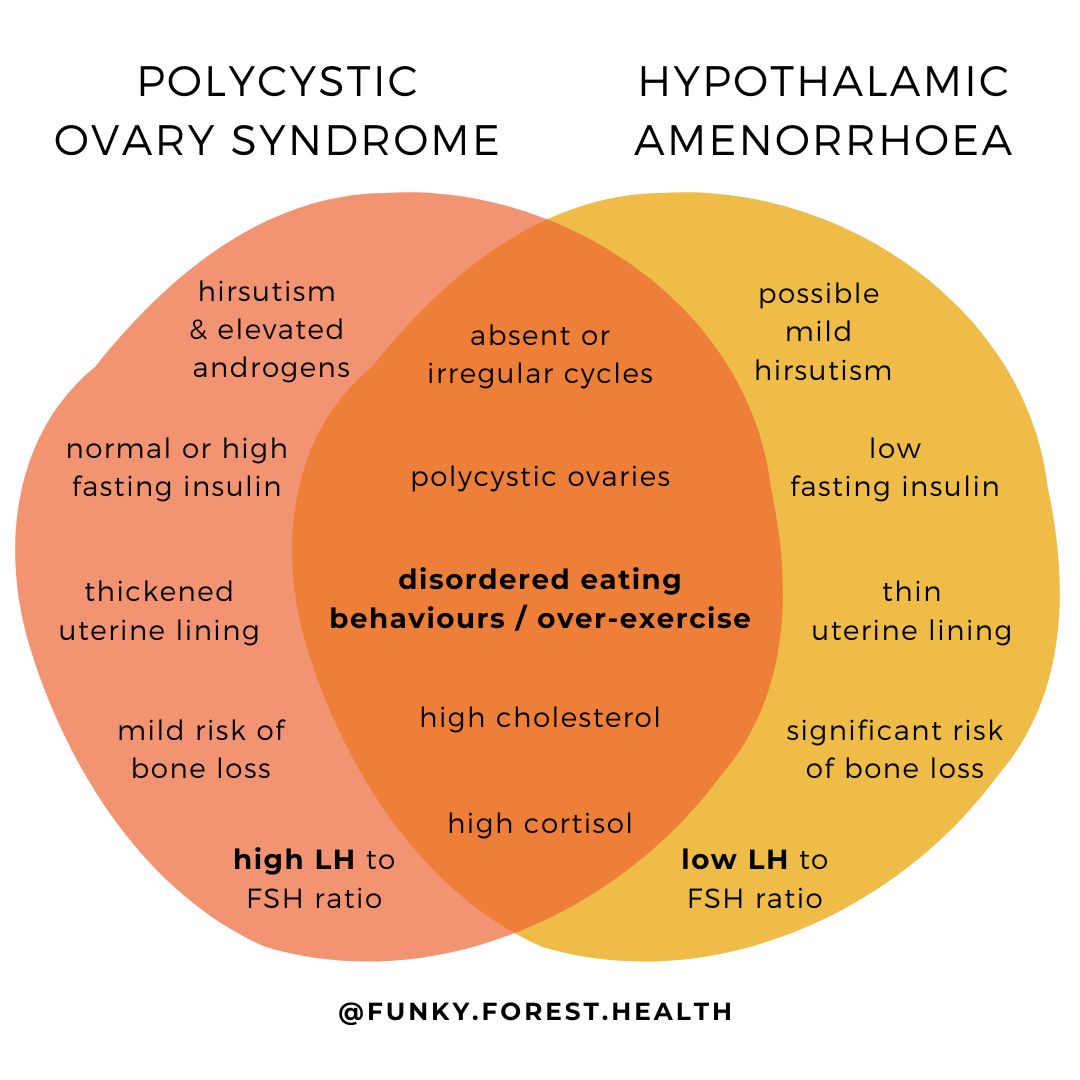Hypothalamic amenorrhoea (HA) is when periods disappear due to under-eating and/or over-exercising. It can also present with mild acne, facial hair, and polycystic ovaries.
These two conditions can look remarkably similar in many ways. So similar that quite a few clients have shared with me the way they were mistakenly diagnosed with PCOS when they actually had hypothalamic amenorrhoea.
And that's baaaaad news, because:
- Women with PCOS are often told to eat less carbs, and/or eat less overall, and
- Women with HA are usually ALREADY under-fuelling which is why they have HA in the first place!
Unsurprisingly, these two conditions often have one big thing in common: disordered eating.
Negative body image also occurs frequently with PCOS. When combined with weight stigma, it's not surprising that many women with PCOS don't like their bodies.
On top of that, these women are frequently told that to manage their condition they just need to eat less carbs and/or eat less overall. It's that simple, right?!? (It's not.)
Disordered eating is often the result. And because folks with PCOS frequently have insulin resistance, it can be hard to control body weight without drastic dieting. Thus the diet-binge cycle begins and this is a huge risk factor for developing an eating disorder.
In fact, women with PCOS are at increased odds of having disordered eating AND specific ED diagnoses.
This meta-analysis states that:
"...chronic dietary restraint, usually recommended from an early age for weight control in women with PCOS, may increase the risk of ED in this population."
If you have PCOS and you're told by your health provider to simply "cut out carbs" or to "just lose a few kilograms", PLEASE seek a second (non-diet, weight-neutral) opinion. There are ways to manage the insulin resistance of PCOS that don't involve cutting out entire macronutrient or food groups i.e. drastic dieting, which is the biggest risk factor for developing an eating disorder.
If you're struggling with irregular or missing periods, or have a diagnosis of PCOS or HA, please seek out a health professional who not only knows these conditions and works with them frequently, but is savvy on ED prevention and treatment and can support you in minimising your odds of developing food and body issues...
...or if you're already in the woods, find someone who can support you in working on your recovery from disordered eating and body dysmorphia WHILST helping you manage either the PCOS or HA. I can help!
With weight-neutral love,
Casey
References
Lee, I., Cooney, L. G., Saini, S., Sammel, M. D., Allison, K. C., & Dokras, A. (2019). Increased odds of disordered eating in polycystic ovary syndrome: a systematic review and meta-analysis. Eating and weight disorders : EWD, 24(5), 787–797. https://doi.org/10.1007/s40519-018-0533-y



































 RSS Feed
RSS Feed



